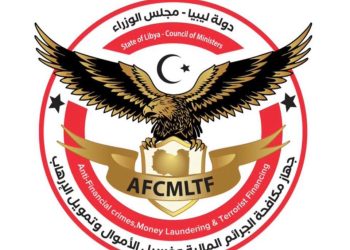Central Bank of Libya (CBL) Governor, Saddek El-Kaber, met in his Tripoli headquarters today with National Oil Corporation (NOC) chairman, Farhat Bengdara.
The CBL reported that during the meeting, ‘‘the support of the National Oil Corporation to raise oil and gas production according to the plans drawn up by the Corporation and to increase coordination regarding transparency and disclosure was emphasized.’’
Reading between the lines
The CBL report on the meeting was very succinct, but it disguises the tensions between the two over the NOC’s spending budget and fuel subsidies and the barter system used for fuel subsidies.
The meeting follows on from the Thursday 25 January meeting at the CBL to follow up on government spending for 2024, which included El-Kaber, Tripoli based Libyan prime minister, Abd Alhamid Aldabaiba, the Chairman of the Presidential Council, Mohamed Al-Menfi, Minister of Transport, Mohamed Al-Shahubi, Minister of State for Cabinet Affairs, Adel Jumaa, and the Director of the Central Bank of Libya Supervision of Cash Department, Naji Issa.
El-Kaber wants the NOC and the Tripoli based Abd Alhamid Aldabaiba government to reduce the huge, and rapidly increasing, fuel subsidies allocated to the General Electricity Company of Libya (GECOL).
GECOL’s increased fuel subsidies in terms of the subsidised fuel that GECOL receives is a function of the success in generating more electricity. The newly repaired and installed units at power stations are consuming more fuel to produce more electricity. But solving Libya’s previous power generation deficit has created a huge fuel subsidies bill.
By reducing fuel subsidies, the Aldabaiba government can have more money to spend elsewhere – rather than keep demanding more money from the CBL.
The CBL also wants the NOC to start putting a value on its balance sheet of its crude oil for imported fuel barter transactions. This would expose the true value of fuel subsidies and awaken the Libyan public to the real cost of fuel subsidies – and failure to pay their electricity bills. This is what is meant in the CBL report on the meeting with Bengdara by ”to increase coordination regarding transparency and disclosure”.
El-Kaber sees the current increased government spending and subsidies as unsustainable. He wants more rationalised spending and wants the Aldabaiba government to be more proactive and forceful in getting more Libyans to start paying for the electricity they consume.
The CBL Governor also wants the NOC to start increasing oil production. This is the reference to ”the (CBL’s) support for the National Oil Corporation to raise oil and gas production according to the plans drawn up by the Corporation. Its productivity has remained static despite a huge exceptional budget allocated to it.
CBL meeting on Tripoli government spending controls for 2024 – report and analysis (libyaherald.com)









